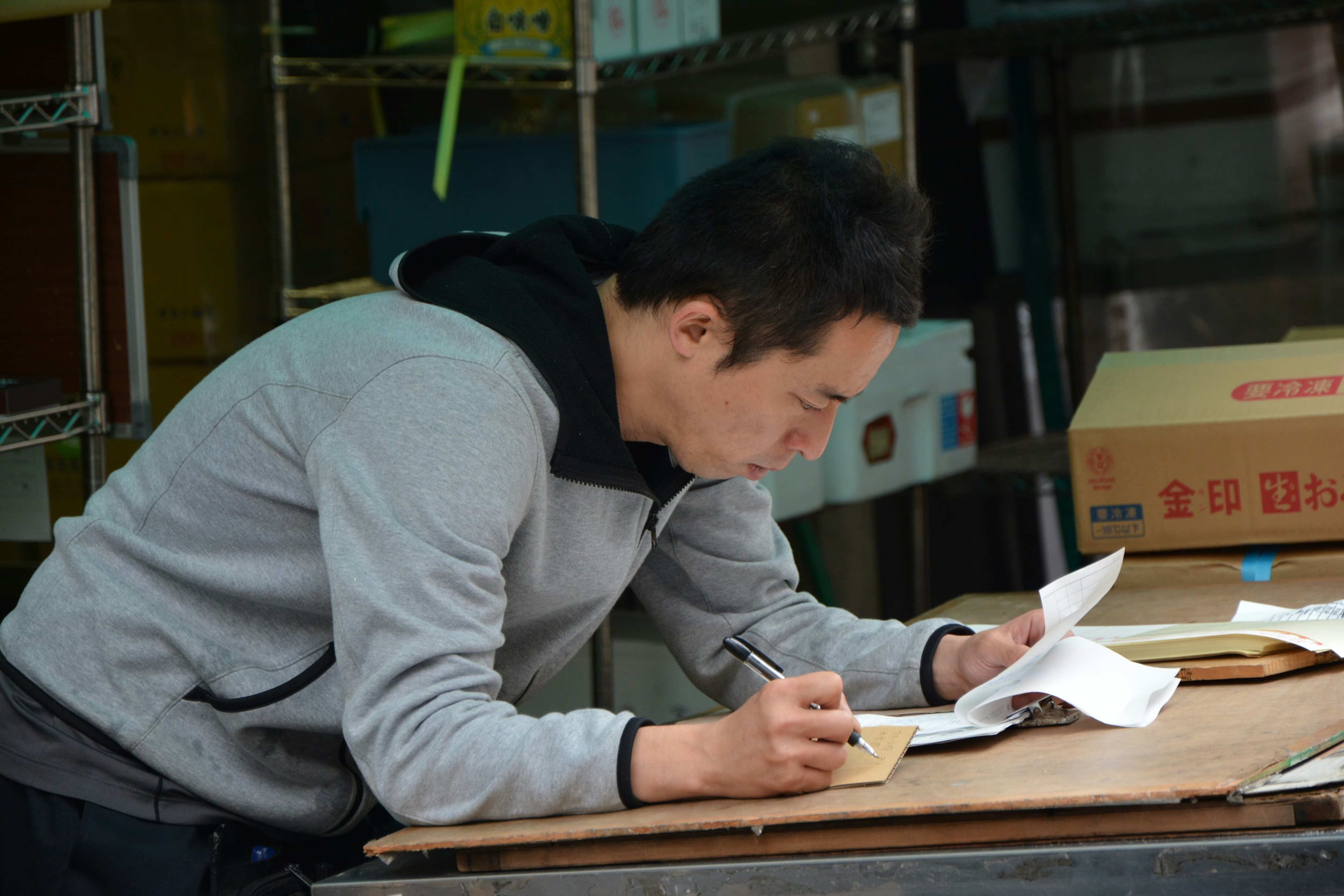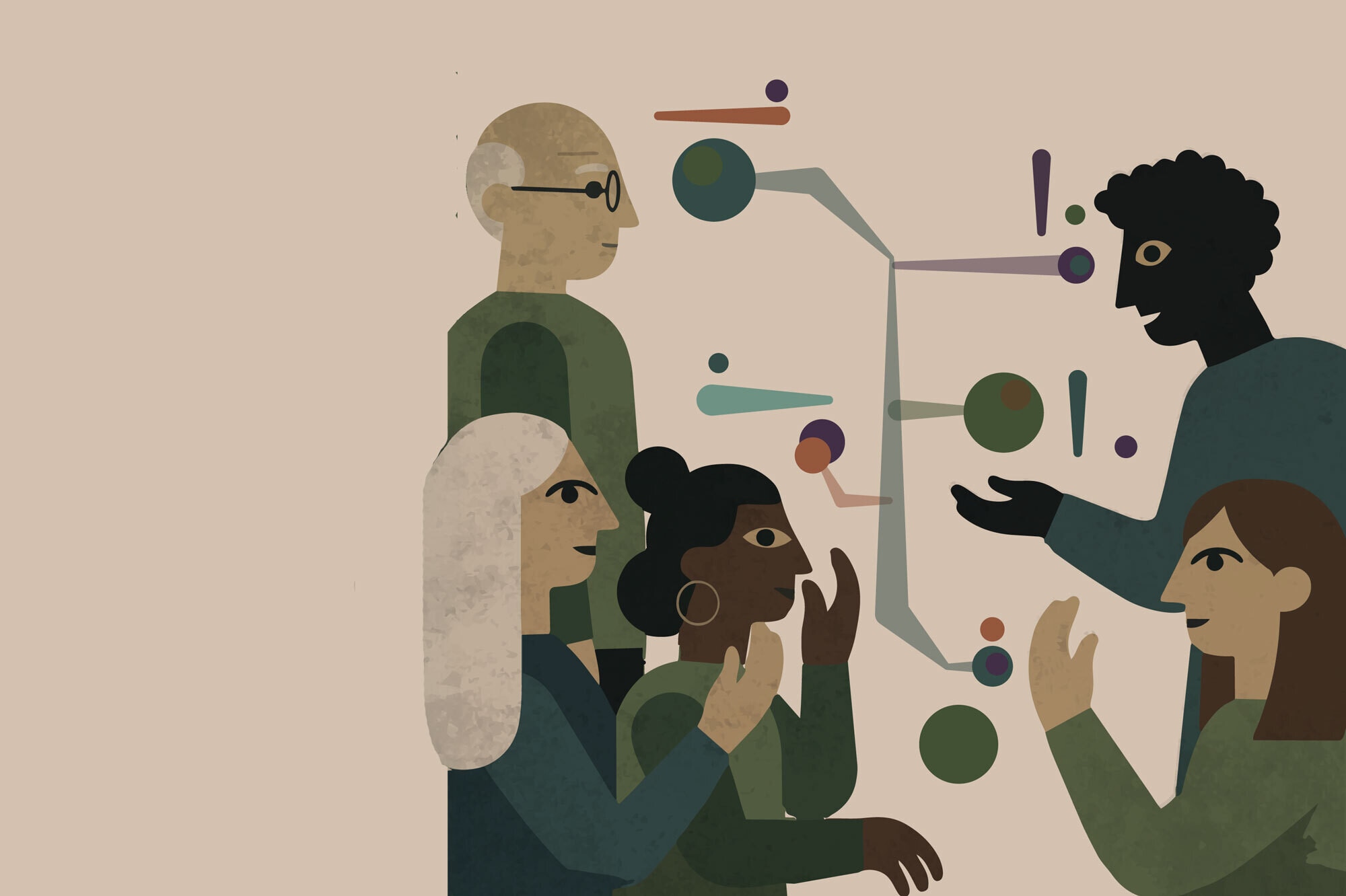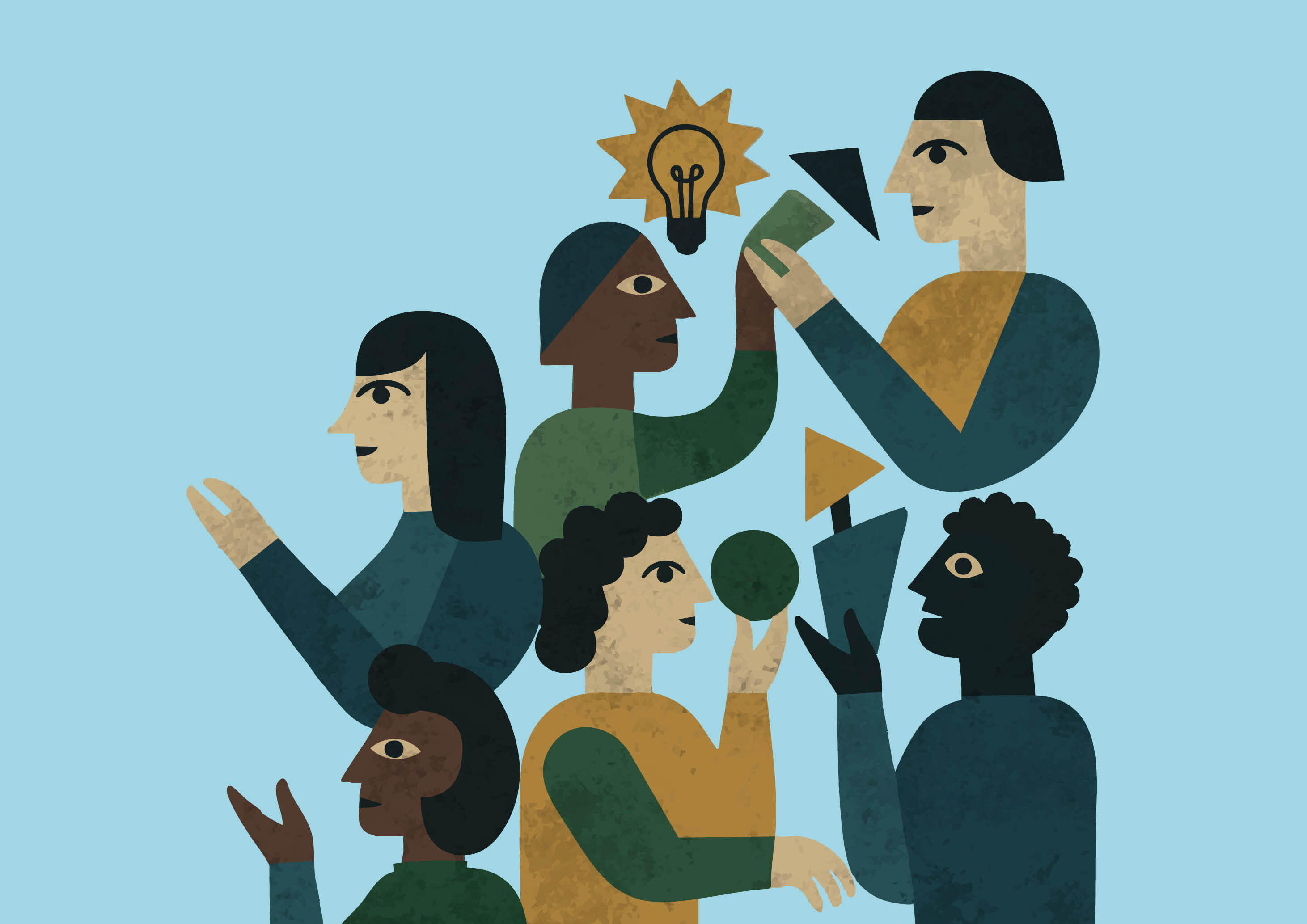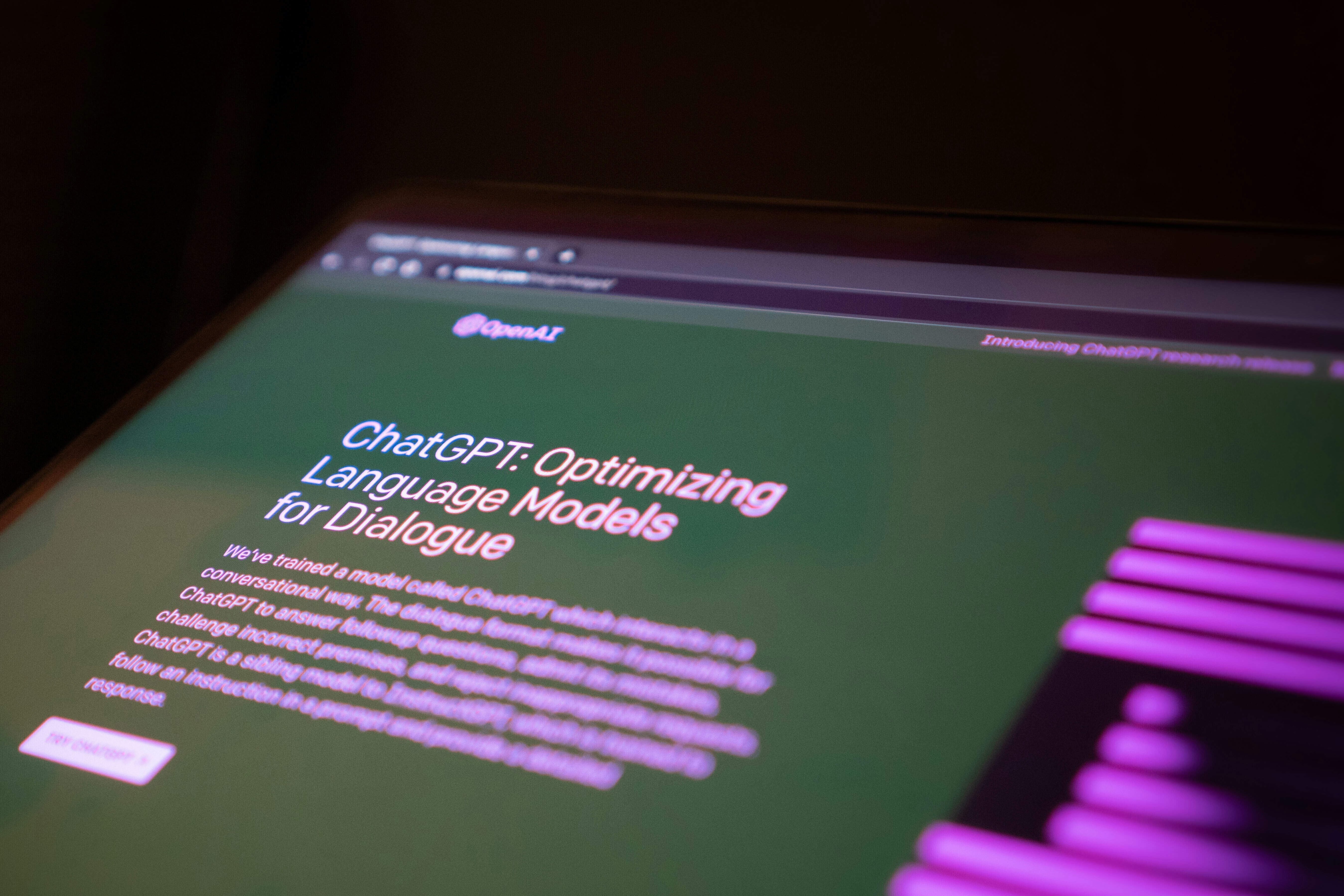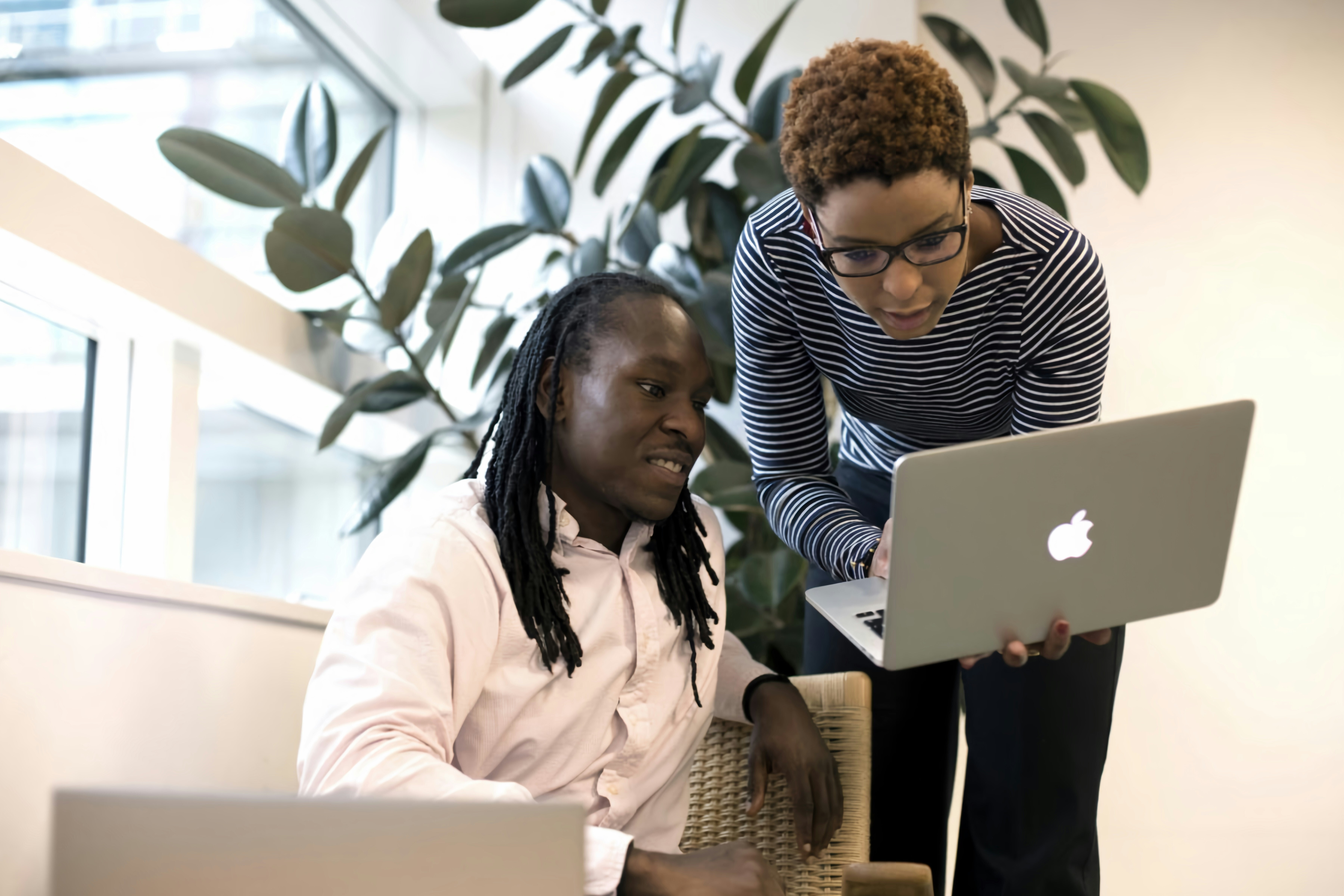Special Meeting 2024: Is Education Ready for AI?
Transcripción del podcast
Mina Al-Oraibi: All right, good afternoon everyone and welcome to this conversation about "Is Education Ready for AI?" My name is Mina Al-Oraibi, I'm the editor of the National and a Young Global Leader and I'm delighted to be leading this conversation. We're just getting used to our setting. It's not a usual setting for a session discussion at the World Economic Forum but it's wonderful to be here in Riyadh.
So we have 45 minutes to tackle a really important topic – education – always important but of course the trend of AI. So of course, AI is already transforming our world and more to come. Our speakers will be talking about much of what we are thinking when it comes to the transformation of education, the opportunities but also the challenges.
Three key areas to tackle is global teacher gap. It is an issue that many people in education systems are concerned about. UNESCO says 44 million additional teachers will be needed by 2030. Now, what seems to be the current agreement amongst all sides, you don't want to replace teachers, you want to enable teachers, you want to empower teachers.
Second is this idea of administrative tasks that can be at least condensed by the use of AI. The OECD lower school secondary teachers have said that 44% of their time is actually put to teaching and everything else is admin and other tasks and assessments. So AI can also be seeing an opportunity there.
And then there's the digital skills gap. Big challenge in different communities across the world and I don't think anybody has figured it out. Different countries and industries are tackling it. So, how can teaching with and about AI change that?
Today the World Economic Forum is publishing a report called "Shaping the Future of Learning: The role of AI in education 4.0." So, I highly recommend that you get a copy of that and it sheds light on many of these issues.
To take on this conversation we have at the very end of the table, Laura Frigenti, who is the CEO of the Global Partnership for Education. Next to her is Minister of Education from Rwanda, Gaspard Twagirayezu. And then we have Jack Azagury who is the group chief executive of strategy and consulting for Accenture. And then Deemah Al Yahya Secretary General for Digital Cooperation Organization and right near me here is Rudayna Abdo, founder CEO of Thaki.
So, Mr. Gaspard, if I can please start with you. How do you see the transformation of education with AI's developments? And if you can give us some of the examples of how you see that in Rwanda at the moment that would be great.
Gaspard Twagirayezu: Thank you very much and this is a very important conversation that we are having. If you look at all the conversations that are happening here, most of them are focusing on AI and how do we improve productivity with AI?
And you can see that AI has potential to increase productivity across all the sectors and education, of course, should not be left behind. And in fact, if AI is not properly streamlined in education, these productivity gains may not happen in all the other sectors, because of course, the education sector is integral to producing the skills and if those skills, if the students or the products of education are not properly trained or did not take good opportunity of AI, then these problems will keep coming back, it is a circular issue.
So education: the question now around this panel, is education ready for AI? The short answer is yes. But the long discussion of view on how. So what we have been seeing as some of these potential examples of how AI could revolutionize education and you kind of mentioned about it on this shortage of teachers.
Of course, AI and technology are not going to replace teachers but again, as you said, we can make sure that teachers are properly educated. Here we are trying to talk about how AI can help in producing education materials for the teachers or training materials for the teachers. So that we do not have all these expensive training sessions that we all have to go through. So, teachers can be enabled to learn on their own using AI and AI can facilitate that.
And of course, AI is not going to replace teachers but we can augment their practice in the classrooms. So, you talked about how we can eliminate these repetitive tasks that the teachers have to go through, whether it's through grading, whether it's through managing the questions, so we see also a huge potential of AI around that. And of course, we also see opportunities around personalized learning. So this is something that has been talked about for a while but we also think that AI also has potential to assess the ability of individual students and then be able to customise content that the students can learn that way.
And another big opportunity that we see on AI, of course, is around equity. So how is that? So you will see that there is a big gap between the students' achievements, whether they are in rural or urban areas. But if you think about technology, if you think about access to content, technology has the potential to provide the same content to all the students, whether they are in the cities or in the rural areas. So, technology and AI, in general, has also the potential to be a great equalizer in that sense. So we think this is also something that we can capitalize on.
So, and of course, this cannot happen if education systems or education leaders do not think differently. So AI, therefore is not something to fight in education. It's something to embrace but how we embrace it is going to make a lot of a difference.
Mina Al-Oraibi: So, you're at the helm of the education system in Rwanda. I mean, how do you see the ability to embrace AI at the moment in your country?
Gaspard Twagirayezu: So in Rwanda, what we have the influence of our education system are part of the overall plan for the government of Rwanda to embrace technology and make technology an enabler of our transformation.
So we started many years ago by putting in place conducive policies for our technology. And then we started building infrastructure around the country and now internet coverage is almost the entire country. And if you look at how internet penetration in schools has been, we are now almost aware we are connecting all the schools.
So we have now a very big project on building that dedicated network for all the schools in the research networks around the country. So, this is to ensure that our students have access to information that teachers have access to information that they can use in a classroom. So this is in preparing our schools to be future ready.
So we have also, of course, investing in making sure that our students have the right type of content and we have digitized all the content that we have in our education system. And we have been working to make sure that this delivery of that content is as smart as possible so that our students and teachers can take very good advantage of that. And another thing that we worked on was to digitize the entire system itself. So how we recruit teachers we have digitized the whole process from end to end, teachers how they are recruited, how they are trained and how they are managed; how they are also transferred between posts.
So we have also digitized assessments. So meaning that we are producing a lot of data around assessments. Our students take what we call “comprehensive assessment” and this is an assessment that's nationally benchmarked. So that we can be able to compare how our students are doing and all of this is digitized.
So this is to ensure that we have data and then later on we are now using this technology that we are talking about here to now make sure that we get the right insights from those sets of data. Are our students doing better and if they are doing better, why? And what can we do to make sure that we keep improving. So there are many examples of what we have been doing to ensure that we build that base.
But again, the challenge is – not only in Rwanda but also elsewhere – is to ensure that we cover all the basics but also at the same time make sure that we are working on these transformational issues.
So maybe, over the course of this discussion, also hear from what other people think but this is going to be a challenge that education systems are going to be working on – how do we ensure that we cover all these technical issues in education to make sure that kids go to school that they go to the right schools, that they have the right teachers, the right teaching and learning materials but also at the same time, think about the future of education. And these are not the things that we can do sequentially.
So these are the things that we will need to make sure that we do in parallel but do it responsibly.
Mina Al-Oraibi: Thank you very much. Well, you spoke about digital transformation. You spoke about many important points about digital transformation, putting in the right infrastructure, data sets. And Deemah, that makes me think immediately to come to you because you've helped through, DCO advance digital transformation in over 16 countries. And of course, education is at the heart of thinking about digital transformation.
So how do you foresee the opportunities but also the challenges in ensuring that digital transformation touches upon education the right way and also ensures equitable access?
Deemah Al Yahya: Oh amazing. Thank you so much for that question, actually, because just listening to His Excellency the minister, that showcases huge potential of using AI. Again, technology is a tool it's as good as you use it. And therefore, you can unlock a lot of great opportunities to help and support in efficiency as well as accuracy and quality of learning as well.
But there is a pressing challenge that always comes to mind, which is having that tool or that amazing tool that can enable that potential of growth. Who can use that technology when we have 2.7% of the population unconnected? They're not even on the grid. They don't even have basic connectivity and internet. So here's where we look specifically in DCO at computing power and computing capacity. Where is that computing gap? How can we make sure that our countries and nations have the infrastructure that will enable them to not just provide these types of technologies to our entire nations but also to grow the local content of that of these nations?
We've been working a lot with private sector and nations to create, to measure that gap. If we look at the 16 countries that we represent right now, two only from these countries have supercomputers. We see acceleration, a lot of acceleration when it comes to upskilling and learning. Rwanda is an amazing role model when it comes to human capital development as well. And we see that the more synergies and the more that we have collaborative initiatives together, we can come up with a pool of talents that can be exchanged between nations and therefore, can expedite that growth and bridging that computing divide between countries.
Not only looking at the computing power but we look also at devices and the availability of devices to schools. Our students are equipped with devices right now that will enable them to use that technology and this is also a factor where we're looking into some of our member countries that already started manufacturing low cost devices, which is from $60-90 per device and see how can we make it available for the nations that need those low-cost devices? And then comes the applications.
Now how can we provide the right infrastructure and as His Excellency mentioned like Centre of Excellences that enable that technology and capability, not only for that nation but other nations around to come up with new innovations and come up with new local content that can grow to become ventures and new technologies that enable the education system? We saw that in COVID.
In COVID, the options were limited for edutech solutions and we can't see that again. We have to make sure that we're creating local content. We cannot create local content without enabling innovation and talents to use that technology.
And this is where comes the – as DCO, we're looking at how can we create an environment that facilitates that communication between private sector and also private sector and public sector to create it to accelerate the growth of digital economy by enabling technologies like AI but not only to countries that can but we don't want to leave anyone behind and therefore, we want to enable prosperity for all.
Mina Al-Oraibi: So something that I heard this morning was we've been thinking about digital transformation, a lot of it has been about again, thinking digital but now we're thinking smart. So the AI process changes it. Exactly as you pointed out, there's the issue of devices, this issue of, you know, what data sets are available and then you add this whole new layer of artificial intelligence.
And so how prepared are countries, from 16 countries that you're working with, how much are they thinking about AI? Are they still at the point of we still need the basics, let's get the basics right?
Deemah Al Yahya: We see that diversity actually, you know, the level is not balanced and this is where we are educating our members and what is the must have and then what's the nice to have. And what's really beautiful is that we're bringing in the synergies; the most mature or advanced countries are actually supporting and helping other countries that are not there yet. And this is where there's dialogues happening.
We just launched in our general assembly, the GenAI Centre of Excellence that will be based in three countries and that will enable the other countries around them. Also the AI toolkit as well, which is the starting point. Not only from infrastructure but also policy and regulation recommendations, as well as human capital development programmes that are from other countries to support.
So I wouldn't say that all of them are in the same level when it comes to maturity but there are a level of maturity where best practices are being shared between the nations.
Mina Al-Oraibi: So I will be opening the floor for questions and there'll be a roving mic coming but I want to give each of our speakers a chance to answer my questions and then we'll turn to you so please keep your questions in mind.
Rudayna, I want to turn to you because as Deemah just highlighted the different countries but also within countries, there are different opportunities and lack of different communities. You at Thaki are thinking about vulnerable communities. And you can tell us a bit more about the work that you do but this idea of vulnerable students and children, refugee, displaced children, you know, how can AI-driven solutions actually help them and often people talk about leapfrogging so you can create new opportunities especially when there aren't enough teachers to go around.
Can AI be a solution for inclusivity?
Rudayna Abdo: Thank you for that question. And first, let me first start by putting the context and share how we work within these communities, where maybe there isn't internet connectivity and when there is internet connectivity, it could be 3G, it could be spotty. So you can't do the kind of streaming and accessing to enable the power that AI needs.
So in context and this, you know, 2.4 billion people in the world are not connected and the disparity is huge. We're talking 27% in low income countries. So within this context, we're working within areas that have either no internet so you have to address offline capabilities and when there are resources available, it's mostly through phones and there could be computer labs, which is what we do is we put those in but they're shared resources.
So just to set that context, what can AI do? I think working with open educational resources, so resources that are free and accessible to communities that may not be able to tap into tools that need the high power, the high skills in order to use them. Low-tech alternatives. So how can these phones utilize AI-driven tools and how can they be adapted to that technology? And I think it's also important to address the multilinguality part of it. And I think a huge point is the bias. Right? And I don't know if you want to get into it now?
Mina Al-Oraibi: We should.
Rudayna Abdo: But the whole bias against data exclusion is these communities are not included or not being accessed online and their voices are not heard and the whole AI system is also excluding those. So that's just increasing that bias and that's increasing the rift and this inequity – that I think we should be extremely mindful of.
Mina Al-Oraibi: So how do we solve for them? In addition to being mindful of it?
Rudayna Abdo: A, how can we get internet connectivity? So whether it's through satellite or how can we get that? But the offline. How can we get AI to address offline and hybrid. So, where we work there is, it's offline but occasionally there are online abilities to get data thrown into the system online. So how can we get better at that? And to my knowledge and I'm not an AI expert, offline capabilities are still lagging so I think we need to start giving that more attention.
Mina Al-Oraibi: Great. Laura, at Global Partnerships for Education, you help countries build stronger education systems. So, as we see AI, everything from generative AI, concerns about plagiarism but also how it will equip young people to learn in a way none of us I think in this room, actually, know – I know not I think – I know none of us in this room ever learnt that way.
How do you prepare, especially when the the speed of change with technology is so fast it's almost impossible to plan for? What's your advice to these countries you're working with?
Laura Frigenti: So let me just maybe give you like three numbers to kind of set the context of what the situation is in the countries where we work. We work in countries where generally, on average, 10 children share one textbook at the moment. We work in countries where often there are 100 children in one classroom for one teacher and in countries where at the end of grade four, seven children out of 10 do not know how to read or write a very simple sentence. So this is the baseline.
Now, obviously, one has several options. The first one is, let the traditional education system do it's course and then, hopefully, it will catch up. I strongly advise against it because that is just going to create a much bigger gap between a part of the world that can invest $8,000 per child per year in education and a part of the world that barely manages to invest $80 and that is going to create all sorts of socio-economic disparities, inequalities within society, inequalities between the Global North and Global South.
So the way in which I try to encourage the conversation between private sector, government and other actors is, let's move away from the idea of products. There is not a kind of one size fits all technology that you can just import into one particular country. You have to start from the condition of the country and in terms of solution, one is what that country needs to be able to improve in a way that is organic, if we can say in terms of growth but that will allow them to really catch up considering how fast the labour market is changing at the moment and therefore, the requirements in terms of the skills that education system produce needs to catch up really rapidly.
So that is a little bit, one of the way in which we help them thinking. So we integrate the improvements that technology and AI can add to the way in which the sector performs or is managed to a bigger way of thinking about the sector needs to transform, which includes a lot changing the curricula, thinking about what you have to do for the problem that you raised in your opening remarks, teachers is the biggest problem at the moment for the education sector in low- and middle-income countries. And I would say also in some high income countries, we don't call them but that I observed.
So all this there is great potential but somehow it really needs to be seen in a kind of a more integrated way than what it is now. Lots of people when I talk they think that it will be sufficient to just put the tablet in the hands of a child and that they will have access to unlimited information and therefore, you know, solve all the problems about the low quality of education is just not going to happen like that.
Mina Al-Oraibi: It's an important point to raise this idea of you can't just give a tablet. If only we got internet connectivity or enough tablets that would work out. I mean and something that Deemah said is also being relevant to the culture, to the country, to the community, that education is there.
So where do we see the opportunities with AI? Where do you see that AI could help with that, especially the contextualization part?
Laura Frigenti: Well I do see a great opportunities on teachers. And let me just say, for example, that at the moment we have, I mean, the vast majority of teachers in low- and middle-income countries are not adequately trained. They cannot be pulled out of the school to actually give them a kind of a more formal training because we are trying to make a very strong push to make sure that those 220 million children that are at the moment out of school get enrolled. And so actually the ratio between the students and the teacher is going to grow.
So you need to keep them in class at the same time, there are things that are particularly complex for them to actually, you know, acquire in terms of knowledge through in-service training, I think of all the STEM agenda – science, technology, mathematics etc etc. So really, I like to see an integration between what the teacher in presence offers to the children on a certain set of topics and then to have really the use of technology is something that supplement and complement the skills that the teacher doesn't have. And at the same time, is a tool for the teacher to be trained fast.
And then the other thing and I think you were also touching on this in your opening points, is the management of the school. We always think about the education system mainly in terms of what's happening in the classroom. The reality is that a lot of inefficiency in the sector are related to how the school and the system is managed. So that is where really I would see a very easy low-hanging fruit.
Mina Al-Oraibi: Thank you. There are so many elements connected to education. So we're totally shifting gears now from primary education or schools where I mean it's staggering this idea of 10 children to one textbook.
Just thinking and Jack, I'll come to you here, thinking about lifelong learning, the role of corporate sector and ensuring that again, people, like many of us in the room who can continue their education, how AI enables that, so flipping it to the other side of the education thinking or model.
Jack Azagury: Yeah. So, as you said, I'm going to talk a little bit about what happens beyond when you graduate from high school, university and get into the corporate world and share a little bit of the research we've done on the impact of AI and the need for training in the corporate world.
The first thing is, we do an assessment of forces of change every year just before the World Economic Forum in January, the one with snow. And this one we released and the two top forces of change – we look at geopolitics, we look at health, we look at consumer behaviour, we look at various things – technology and people and talent, the two top forces of change.
We then did some analysis, we looked at 900 jobs, 19,000 tasks in the corporate world to assess what is the impact of AI on those jobs. And so far and I think this number will go up as AI and the strength of AI and these LLMs increases exponentially but 44% of all jobs will be impacted, augmented or maybe misplaced and other jobs created and don't get me wrong, we're positive about the long term impact of AI on job creation. But it is a dramatic, dramatic impact that that it will have.
The next, the third fact that I'll share is we see still a gap in organizations, a disconnect – 94% of employees in our research want extensive tech data in AI education. Only 5% of companies are really providing end-to-end training and education. Two-thirds of CXOs [chief experience officers] say they are ill-equipped to manage this transition with AI. Almost 60% of employees feel nervous and insecure about the impact. And when we look at the top worries of the C-suite, skilled job skills and retraining of their employees is at the top of the list.
So we have a background here where there's a dramatic shift that needs to be made. And we see this as a period of retraining and reskilling unlike any one we've seen before. I will tell you as a company, we have trained, over the last two years, 600,000 of our employees in AI and in the last year, 250,000 of our 740,000 in GenAI. So when we look at this, companies need to become talent creators, not just talent consumers. I believe it's not just an obligation, that we can debate that but it is a matter of competitiveness. It is a must they have to become talent creators. For one, they will not get the right employees if they don't focus on that and the two, that will be uncompetitive.
We believe companies are going to have to have a much better understanding of their skills, what skills to all if you have 100 employees or 10,000 employees or 100,000 employees, what skills do your employees have? Where are they today? Because if your jobs are going to change, if the profile of the work you do is going to change, if you don't know where the opportunities are, how do you get them to where they need to be?
The third, the next thing is when we look at AI itself and there's been many studies, including one by MIT, if you give somebody AI and GenAI versus you give them AI and GenAI with training and education, the performance of those who get trained is much higher. Some people think that prompting is the same as a Google search – it's not, you actually have to learn how to be good at prompting to leverage the power of technology. How do you interact with the model? How do you understand, you know, what element to use for which application – different elements will give you different answers for different topics that will have more precision in certain areas. How do you need to understand the technology to fully leverage it?
And the last thing I will say is one of the things AI is going to be able to do is hyper-personalize learning. I believe it will be even better than getting a personal coach, we know in education people have who had the luxury of personal, more personalized training do better. I believe they will be better than personalized coach. The demand for this for our clients has been tremendous.
We actually in September decided to launch a business we just announced called LearnVantage around education and corporate AI based learning. But when you have an AI engine that knows what you've worked on, what you're going to be working on, what articles you've read, what training is taken, how you learn. Do you have any – you know, we all learn different ways, the AI agent will be by your side, learning how you learn, what you need to learn, what you've learned and focus the learning in a way that you know is going to dramatically improve learning adoption and the quality of the learning and so I am optimistic around the impact of AI.
But I do think in the corporate world, it's a lot of work to do. And I will share the concern about the digital divide that my fellow panellists have talked about multiple times. Without an internet connection, GenAI is not going to help and we know GenAI is going to uplift a lot of people but we have to find a way to get GenAI to uplift everyone and without the foundation of connectivity and compute, you know, we're gonna have a big issue and without the 2 billion people, that my two panellists said, that is a big problem and corporate, public and private have to help solve that issue.
Mina Al-Oraibi: So I want to want to open the floor but one point, Jack, that you mentioned is personalization, hugely important, especially for how people learn – from children through to older age – and it's quite interesting in the UAE, they're piloting something the minister of education actually was discussing this in Davos, how they are piloting tutors for students, depending on how the student learns.
So everybody needs to do their, you know, five times table but some students will learn perfectly with visuals, others need to be taught and you know, through verbal and so forth. So this idea is as you learn more about each individual, you can personalize.
Does anybody have a question that they would like to ask and if there's a particular panellist you wish to pose the question to? Otherwise we will continue our discussion. Oh, yes, this gentleman here. Please, if you don't mind identifying yourself and the mic's right there.
Sharif Abdelrazeq: Hello, everyone. Thank you very much for a great discussion. My name is Sharif Abdelrazeq and I'm from Jordan. I'm a Global Shaper from Amman Hub.
My question is very much focused on trying to understand how with that amplification of access to resources, how important is resourcefulness especially with the emergence of technology in the sense of microchips going straight into our heads, you know, and how is that in parallel to robotics and the development of robotics? Are we going to spend more time on work?
Mina Al-Oraibi: Deemah, do you want to tackle that?
Deemah Al Yahya: OK [laughter].
Mina Al-Oraibi: You're the digital transformation person.
Deemah Al Yahya: Well, thank you for that question. It's a very forward-thinking and a foresight question and I hope I can cover that but from my perspective, I see that before looking at the again, the more resources we have, the technology is as good as we use it.
So, and that's what I, in simple senses like ChatGBT – if you don't put in the right question, you will not get the right answer. So we have to start educating our children and also ourselves on how to write the right question. And that gets us to do we have the powers of analysing the challenge that we're facing that we need the solution for? Do we know how to analyse it? Do we know exactly what we need? Do we know the requirements that we have to look for to get the right result? So this is where as much resources we have if we don't know how to use the technology the right way and how looking at it from a way that how is it going to serve you and how's it going to help you in achieving your goals and the impact that you want to achieve that as much as you have, it's not going to help.
In terms of the looking at the chips and that I see an exciting time but a lot see it also as a challenging and frightening time is that if we look at it from a way of helping disabilities and knowing exactly where is the challenge, now we look at we see we're facing a lot of mental health challenges that challenge students are learning and challenge students and in getting the right education and growth and us as we're in the workforce as well. And I think these chips, the more that we can collect data and understand exactly what is the cause of the problem, what is the challenges that we're facing, we can come up with the right solutions that can increase our productivity.
So I always look and say let's look at the positive. The positivity of these technologies that will enable us to do so much more. Now, looking at the in terms of the robotics, I always see these new emerging technologies, especially AI, although AI has been started since the 60s, it's not a new technology but the evolvement of the technology, always gives us an opportunity to move the quality of workers from blue collar jobs to white collar jobs. And that always provides opportunities for growth and where humans are positioned in jobs that actually are made for, which is made for using our brains more and using our intellect more.
And this is where we're creating machines or robots and new technologies that can fulfil the blue collar jobs of course in that process of transformation and change, there is going to be a drop where we will see, it will take time to upskill and introduce these new jobs but always I think it is a great opportunity for growth and new jobs to emerge and also opportunities for the generations to come to grow.
Jack Azagury: If I may, I completely agree with your answer. I'll give an example. And I don't know if you'll point to when we go to – there's a lot of studies maybe we'll go to three days a week or four days a week with AI and I don't know, it's hard to predict. But I will tell you, you know the evolution of jobs – we ran a workshop with an organization around the impact of GenAI.
And most employees are nervous when you say you're gonna analyse GenAI in your organization and we did an exercise where we had everybody map out everything they do on a big whiteboard with all their tasks on the board, from the moment they start the day to the end of the day and then we ask them to put a smiley face next to tasks they enjoy and a sad face next to tasks they did not enjoy and there were a lot of sad faces through the course of a day.
Mina Al-Oraibi: I'm not sure I should do that. That's a pretty brave encounter there.
Jack Azagury: And then we took all the sad faces and that's where we're going to focus GenAI. Again, we need to look at the immense possibility to automate routine tasks, uplift the workforce, have everybody focused on higher value ideas, which is what people enjoy doing for the most part. So.
Mina Al-Oraibi: So, I want to turn to each of the speakers to answer a last question. So it's gonna be the same question for all of you and I want as we leave this room to think about what is one trend or one phenomenon when it comes to AI and AI development and education that you think we should focus more on or we should advocate for. So Rudayna, I'm gonna start with you. What's that one thing?
Rudayna Abdo: I would say diagnostics and getting not just at the learning and potentially learning difficulties – like could dyslexia, ADHD could the diagnostics of what goes into the system give feedback to the student, to the learner, to the parents on that.
Mina Al-Oraibi: That would revolutionize both learning and preparation of students. Deemah.
Deemah Al Yahya: Well, I would really focus the attention right now to accelerate, bridging the computing device, making sure that everyone has a fair opportunity to learn and use this new technology.
Mina Al-Oraibi: And do you see that bridging divide as being responsibility of individual governments. Do you see it bigger? Is it SDG UN level?
Deemah Al Yahya: Well, yes, I think it's collective, it's... governments cannot do it alone. And private sector also cannot do it alone, I think and financial institutions. So I think it's an ecosystem and a multilateral, actually, engagement where everyone should cooperate together to bridge that divide.
Mina Al-Oraibi: Jack.
Jack Azagury: I will talk about responsible AI. Right now, the impact of the corporate world, which I know only 2% of companies have a fully institutionalized responsible AI foil and that has to be embedded into the education so that when people use AI, they know how to spot bias. They know where the model got their data. They know when to spot incorrect answers. They know if it may be a copyright infringement.
So embedding the knowledge of responsible AI so humans can understand the model and what the model’s doing right and wrong, I think is paramount.
Mina Al-Oraibi: That's great. Minister.
Gaspard Twagirayezu: Thank you. I would say that even beyond AI, our ability to adapt is going to be very crucial in this conversation. So for instance, the students that we have in our schools now, by the time they will graduate in a completely different world. So meaning, the best thing that we can do is to help them and to teach them how to learn better and help adapt to changing circumstances.
But for us to be able to do that, we also need to transform, we also need to adapt as educated systems. So, one example I will give you, for instance, ChatGPT helped me write this first part of the answer. So meaning our students are going to also be using all these tools in our classrooms. So meaning that if we are developing assessments as an education, systems also need to be mindful that and help our students use these tools better.
And also, for all of us to be thinking about how do you assess for this higher order skills for our students that they need but also make sure that these tools are not things that have to be kept away from the classroom, so bad things that have to be adopted in better so in our systems?
Mina Al-Oraibi: Laura
Laura Frigenti: So I would say two things. I mean, the first one to pay extreme attention to inclusion. In the sense that AI can be a potential tool for broadening the base of those who actually have better opportunities. But if we only focus on the technical aspects, we really stay with the potential the details for the few that can you know, that can use it.
And the second part, I would say, is a strong attention to disinformation. We are living in the era of access to information but also access to disinformation. And I think that if we don't find a way of regulating how this incredible tool is used, then that can also have a sort of negative repercussions as we have seen.
Mina Al-Oraibi: That's an incredibly important point to raise. You know, one thing I and many journalists talk about is this idea of media literacy and when we speak about media literacy 10 years ago is completely different now to be able to discern what is true and what is false. Hugely important.
So many issues have been raised – inequity, inclusion, bridging the gap – all reminding us by the importance of not forgetting people behind but also thinking throughout the learning cycle. This morning, I was also part of a conversation talking about jobs and reskilling and this was the one issue that really came up – the ability to adapt and also the mindset, what mindset we adopt, hugely important. And that these tools will be adopted. I mean, we can't stop the tide.
So I think the idea of also sometimes you have a lot of scepticism to make sure that rather than scepticism, it's thinking how best to serve people. To serve, of course, the current generation but also importantly, the next generation and the knowledge of responsible AI kind of feeds into all of that.
So, thank you so much to my panellists. We could have taken this conversation so many directions. There's so much to talk about but a wealth of knowledge here. So thank you, and thank you for tuning in. And thank you to those who are here.
With the education industry at a pivotal point of transformation driven by AI and innovative teaching methodologies, new education hotspots are emerging to address the growing and diversified education needs of the global economy.
How can governments and businesses future-proof their education systems and leverage AI and other technologies?
This is the full audio from a session at the Special Meeting on Global Collaboration, Growth and Energy for Development in Riyadh on 28 April, 2024.
Speakers:
Rudayna Abdo, Founder and Chief Executive Officer, Thaki
Mina Al-Oraibi, Editor-in-Chief, The National
Laura Frigenti, Chief Executive Officer, Global Partnership for Education
Jack Azagury, Group Chief Executive, Strategy and Consulting, Accenture
Gaspard Twagirayezu, Minister of Education, Rwanda
Deemah Al Yahya, Secretary-General, Digital Cooperation Organization (DCO)
Catch up on all the action from the Special Meeting on Global Collaboration, Growth and Energy for Development at wef.ch/specialmeeting24 and across social media using the hashtag #specialmeeting24.
Check out all our podcasts on wef.ch/podcasts:
Temas:
Educación y habilidadesMás episodios:
La Agenda Semanal
Una actualización semanal de los temas más importantes de la agenda global
Más sobre Educación y habilidadesVer todo
Naoko Tochibayashi
14 de enero de 2026




